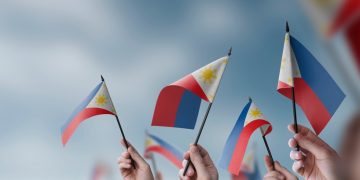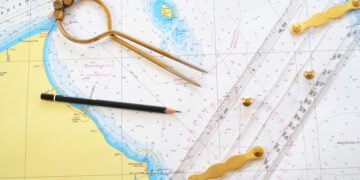The Magna Carta of Filipino Seafarers (Republic Act No. 12021) was enacted on October 11, 2024, marking a significant milestone in the protection and welfare of Filipino seafarers.
This legislation introduces a range of reforms and guidelines to address the pressing concerns of the maritime industry, including claims handling, third-doctor referrals, and judgment execution, thereby improving the working conditions and rights of Filipino seafarers both domestically and internationally.
Below are the key points to know about this landmark law.
1. Protections for Filipino seafarers
The Magna Carta aims to guarantee Filipino seafarers’ rights to fair and dignified working conditions, including access to healthcare, legal assistance, and social protection. Among the protections offered, seafarers are assured of the following:
- Right to fair treatment: The law mandates that shipowners and manning agencies respect the rights of seafarers by ensuring proper treatment while on duty.
- Access to collective bargaining: Seafarers are given the opportunity to form and join unions, thereby ensuring that they can negotiate for better terms and conditions with employers.
- Monetary benefits: The law clarifies the guidelines for claims related to disability, death, and other compensable injuries. This includes clearer procedures for claims handling and the rights of the families of seafarers in the event of a death.
2. Improved legal and medical support
Under the Magna Carta, Filipino seafarers now have access to better legal and medical support. The law provides for:
- One-Stop Shop Centers for Seafarers: These centers are designed to assist seafarers in addressing their various needs, including access to legal services, healthcare, and other support services.
- Medical treatment and free legal representation: Seafarers will receive fair medical treatment, and in case of disputes or claims, they will be entitled to free legal representation, ensuring they have adequate resources to protect their rights.
3. Enhanced training and development opportunities
The law prioritizes continuous professional development for Filipino seafarers, which is vital to maintaining the global competitiveness of the Filipino maritime workforce. Key provisions include:
- Advanced training opportunities: The Magna Carta provides for the establishment of training programs to enhance the skills and capabilities of seafarers, ensuring that they remain competitive in the global market.
- Modernized maritime education: The law requires maritime educational institutions to adopt state-of-the-art facilities and equipment, offering a more robust curriculum for the seafarers and cadets who will shape the future of the maritime industry.
4. Addressing discrimination and gender inequality
The Magna Carta places special emphasis on addressing gender discrimination, particularly against women in the maritime industry. The Implementing Rules and Regulations (IRR) of the law stipulate:
- Protections against discrimination and intimidation: The law ensures that seafarers, especially women, are protected from gender-based discrimination and harassment.
- Opportunities for women in the maritime sector: By safeguarding the rights of women and promoting gender equality, the Magna Carta opens more opportunities for women to thrive in a traditionally male-dominated industry.
5. Tackling fraudulent claims and ensuring accountability
The law also addresses some of the systemic issues within the maritime legal system, such as fraudulent claims and the abuse of legal processes. Atty. Iris Baguilat, President of Döhle Seafront Crewing (Manila), Inc., discussed the importance of loss prevention and compensable claims at the 2024 SAFETY4SEA Athens Forum. She emphasized that the Magna Carta will help:
- Combat ambulance chasing: The law targets fraudulent claims and ensures that only legitimate, compensable claims are addressed, reducing the abuse of the legal system.
- Ensure accountability: The law mandates greater accountability from shipowners and manning agencies, ensuring they comply with their legal and financial obligations towards seafarers.
Global recognition of Filipino Seafarers
The enactment of the Magna Carta underscores the Philippines’ critical role in the global maritime industry. The Philippines has been a leading supplier of seafarers, with over 600,000 Filipino seafarers deployed abroad each year, according to the Maritime Industry Authority (MARINA). The law’s provisions aim to ensure that Filipino seafarers remain competitive and well-prepared to meet the challenges of the global market, particularly in the European sector.
The government has committed to addressing the ongoing challenges in domestic regulations concerning the training and accreditation of Filipino seafarers. This is vital for ensuring that Filipino seafarers retain their employment prospects globally. As President Ferdinand R. Marcos Jr. emphasized , the IRR of the Magna Carta would help create a “well-prepared and competitive maritime workforce,” ensuring that Filipino seafarers can continue to thrive in international waters.



































































